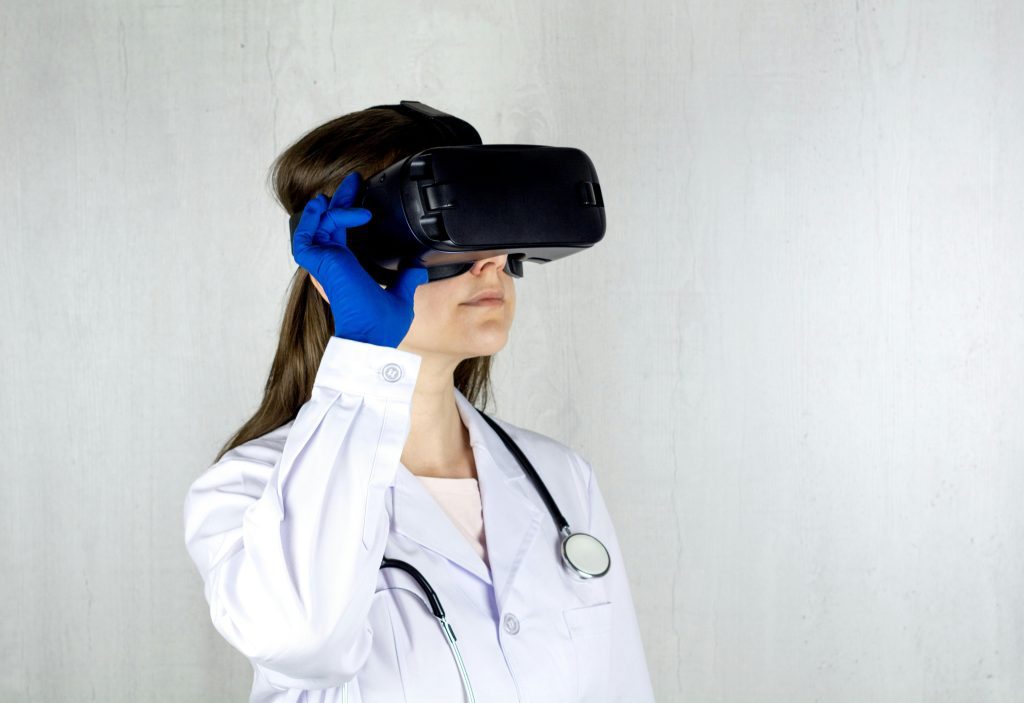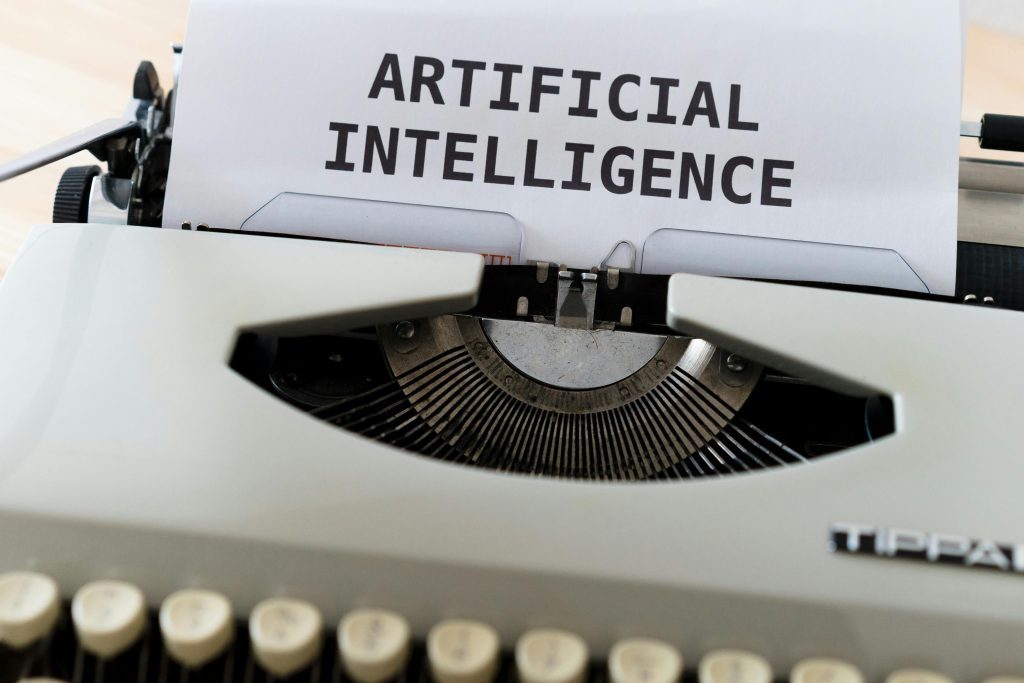
How AI is Transforming Healthcare: Benefits, Challenges, and Future Trends
Introduction
Artificial Intelligence (AI) is rapidly transforming the healthcare industry, revolutionizing patient care, diagnosis, and treatment methods. AI-driven technologies, such as machine learning (ML), natural language processing (NLP), and robotic automation, are enhancing efficiency, improving accuracy, and driving cost reduction. In this article, we explore the benefits, challenges, and future trends of AI in healthcare.
The Role of AI in Healthcare
What is AI in Healthcare?
AI in healthcare refers to the use of advanced algorithms and machine learning models to analyze complex medical data, assist in clinical decision-making, and automate various tasks in the healthcare ecosystem.

How AI is Changing Medical Practices
AI is helping doctors diagnose diseases faster, optimize treatment plans, and even predict health outcomes. Whether it’s analyzing X-rays, personalizing medications, or automating administrative work, AI is significantly improving healthcare services.
Benefits of AI in Healthcare
1. Enhanced Diagnostics and Early Detection
AI-powered diagnostic tools are improving accuracy in detecting diseases such as cancer, cardiovascular disorders, and neurological conditions. Deep learning algorithms analyze medical images, pathology slides, and genetic data to identify anomalies at an early stage, leading to timely interventions and better patient outcomes.
2. Personalized Treatment Plans
By analyzing vast amounts of patient data, AI can tailor treatment plans based on an individual’s genetic makeup, medical history, and lifestyle. Precision medicine leverages AI to recommend the most effective therapies, minimizing trial-and-error approaches in treatment selection. It is al because of artificial intelligence.
3. Streamlined Administrative Processes
AI-driven automation is reducing the burden of repetitive administrative tasks such as medical coding, billing, and appointment scheduling. Robotic Process Automation (RPA) enhances efficiency, allowing healthcare professionals to focus more on patient care rather than paperwork.
4. Virtual Health Assistants and Chatbots
AI-powered chatbots and virtual assistants are improving patient engagement by providing real-time health advice, appointment reminders, and symptom analysis. These digital assistants enhance accessibility to healthcare, reducing unnecessary hospital visits.
5. Drug Discovery and Development
AI is accelerating the drug discovery process by predicting molecular interactions, identifying potential drug candidates, and optimizing clinical trials. Machine learning models help pharmaceutical companies reduce the time and cost of developing new medications.
6. Predictive Analytics for Patient Care
Hospitals are using AI-based predictive analytics to anticipate patient deterioration, prevent hospital readmissions, and optimize resource allocation. By analyzing real-time patient data, AI helps clinicians make informed decisions and improve patient safety.
Challenges of AI in Healthcare
1. Data Privacy and Security Concerns
The integration of AI in healthcare raises significant concerns about patient data privacy and security. AI systems rely on vast datasets, making them vulnerable to cyber threats and breaches. Ensuring compliance with regulations such as HIPAA and GDPR is crucial for safeguarding patient information.
2. Bias and Ethical Issues
AI models can inadvertently reflect biases present in training data, leading to disparities in healthcare outcomes. Addressing bias in AI algorithms requires diverse datasets, continuous monitoring, and transparent AI governance.

3. Integration with Existing Systems
Many healthcare institutions rely on legacy systems that may not be compatible with AI-driven solutions. Integrating AI into existing workflows requires significant investment in infrastructure, training, and interoperability.
4. Lack of Standardization and Regulation
The rapid advancement of AI technologies has outpaced regulatory frameworks. The absence of standardized guidelines for AI applications in healthcare poses challenges in ensuring reliability, accountability, and patient safety.
5. Resistance to AI Adoption
Healthcare professionals may be hesitant to embrace AI due to concerns about job displacement and trust in AI-generated decisions. Educating medical practitioners about AI’s role in augmenting human expertise is essential for widespread adoption.
Future Trends of AI in Healthcare
1. AI-Driven Telemedicine Expansion
With the growing demand for remote healthcare, AI-powered telemedicine platforms are evolving to provide virtual consultations, remote patient monitoring, and AI-assisted diagnoses, making healthcare more accessible and convenient.
2. AI-Enhanced Robotics in Surgery
Robotic-assisted surgery is becoming more precise and minimally invasive with AI integration. AI-driven robotic systems assist surgeons in complex procedures, reducing recovery times and improving surgical outcomes.
3. AI in Genomic Medicine
AI is revolutionizing genomics by identifying genetic markers linked to diseases, enabling early interventions and personalized treatment plans. AI-driven genomic research is paving the way for advancements in gene therapy and rare disease management.
4. Blockchain for AI-Powered Healthcare Security
The combination of AI and blockchain is enhancing data security, ensuring transparency in patient records, and preventing fraud in healthcare transactions. Blockchain technology helps create a secure and decentralized framework for medical data management.
5. AI-Driven Mental Health Solutions
AI applications in mental health are expanding, with virtual therapists, emotion detection AI, and sentiment analysis tools helping individuals manage stress, anxiety, and depression. AI-powered mental health platforms provide 24/7 support to patients in need.
6. AI-Powered Wearable Health Devices
The rise of AI-integrated wearable devices, such as smartwatches and biosensors, allows continuous health monitoring. These devices provide real-time insights into heart rate, blood oxygen levels, and sleep patterns, enabling proactive health management.
Conclusion
AI is revolutionizing healthcare by enhancing diagnostics, personalizing treatments, and improving operational efficiency. However, challenges such as data privacy, bias, and regulatory concerns must be addressed to ensure ethical AI adoption. As AI continues to evolve, it promises a future where healthcare is more efficient, accessible, and personalized than ever before.
